You’ve finally implemented an affiliate program onto your online store. Affiliates are already signing up, and you’re received a few referral sales.
However, you may have noticed that a worryingly large amount of the affiliates you’ve hired aren’t doing much to promote your business. Their sales numbers are low, they’re not engaging with your content, and you’re just not seeing much of a return on investment.
There’s a wide variety of reasons that your affiliates aren’t referring as much traffic as you thought they would to your online store. So, in this article, we’ll go through seven of the most common reasons and break down how to fix them.
1. Your Affiliates Don’t Feel Supported
The work doesn’t stop at hiring an affiliate to promote your store. You also need to provide your affiliates with consistent, valuable support. Without it, affiliates may feel demotivated to refer customers – if they’re not getting help from you, why should they put the extra effort in to make sales for you?
If affiliates have no easy way to get in contact with your business, whether they have a question about the affiliate program or your business’s products, then they won’t feel as compelled to promote you.
Additionally, if they’re not provided with regular updates on what’s happening with your business, new products, changes to your service, or affiliate-specific resources, then they won’t feel valued or included in the process.
Solution: Provide resources and points of contact.
To keep your affiliates satisfied, ensure that they have various forms of exclusive contact with your business. This can include an affiliate support email, phone number, or live chat with clearly marked office hours. Outside of your office hours, you can also offer affiliates a knowledge base that they can access at any time.
Affiliates shouldn’t have to bear the responsibility of contact all the time, either. Your business should regularly contact affiliates to check in on them, ask if they need any help or resources, and recognize their successes.
You should also keep them up to date regarding your business. Consider sending out a regular affiliate-exclusive newsletter that introduces new products or services, includes ideas for content that affiliates can use, and highlights affiliates who have exemplary performance.
2. You’re Not Elevating Their Business
Affiliates aren’t just motivated by commission rates – many also want to elevate their own website, brand or business through a mutually beneficial relationship with yours. This is especially true when it comes to affiliates that are trying to build a following and are looking for ways to engage that following through their relationship with businesses like you.
For affiliates that run new businesses, they’re looking for more rewards aside from a simple commission rate. If they’re not seeing that value offered to them in any capacity that can engage and expand their following through your partnership, there’s less motivation to promote.
Just providing them with content alone may not be enough – they need something more engaging.
Solution: Offer discounts and giveaways.
Some of the most effective ways for both your business and your affiliate’s brand to gain exposure is through giveaways or discount codes. Here’s an example of a small business running a giveaway among its audience through its partnership with Divoom, a Bluetooth tech company.

This giveaway is mutually beneficial for both the affiliate and the larger business. The small business, Stami Studios, is facilitating engagement among their audience by offering a reward provided by Divoom. In return, Divoom gains many new customers through the exposure to this relevant audience.
If you’re able to pinpoint affiliates that have valuable followings, it’s crucial that you take advantage of that by offering them the ability to run giveaways and discounts such as this.
3. You’re Not Monitoring & Rewarding Success
If you don’t know how your affiliates are performing, there’s no way for you to track your highest and lowest performing affiliates, helping you to pinpoint where you should nudge affiliates to perform better. You’ll also have no way of knowing how successful your affiliate program is as a whole; how much revenue are you truly bringing in from your affiliates?
Without this monitoring, affiliates may feel unappreciated and not be motivated enough to promote your business on their channels. Or, they may simple be unaware of how successful their own efforts have been until they receive their payout.
Solution: Track your metrics and reward successful affiliates.
It’s important to notify affiliates when their hard work pays off. One way to do this is by sending out emails when they’ve earned commission on a sale. Here’s a perfect example of that from Gumroad:
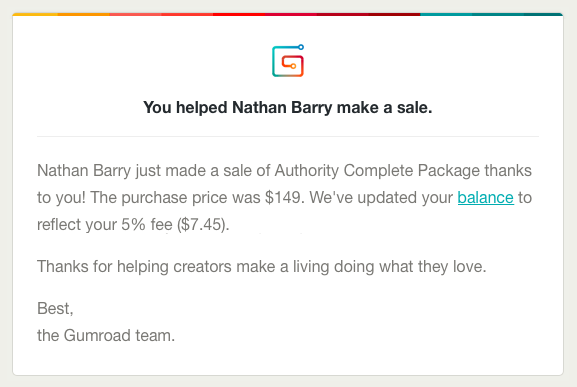
The software that you use to manage your affiliate program should be keeping track of the individual performance of each of your affiliates. If not, you can employ the use of an affiliate tracking software to give you insight into the performance of your affiliates.
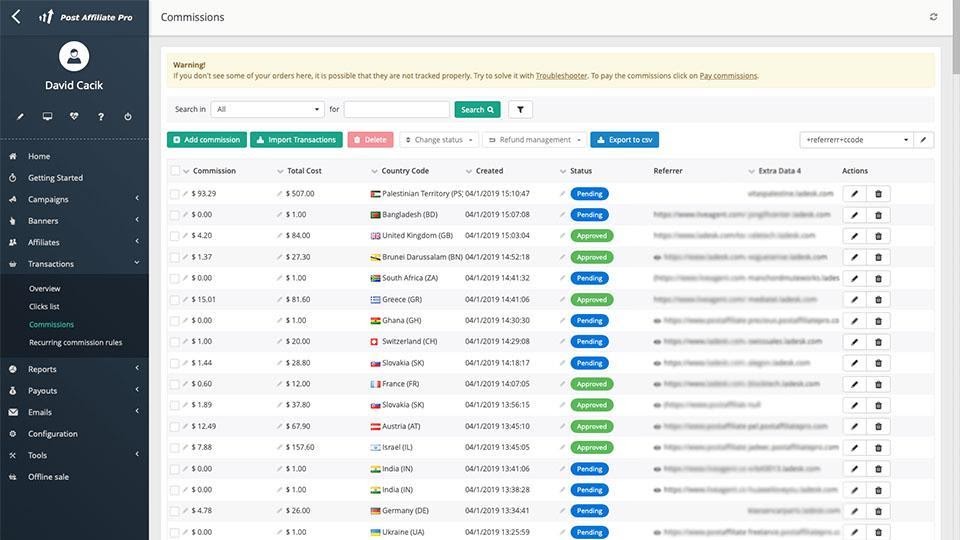
With this information, you can recognize standout affiliates that are outperforming the rest and highlight them. Alternatively, you can take initiative and contact affiliates that aren’t making sales to ask if they need assistance or resources.
You can also use sales metric information to gamify rewards and operate on a tier-based system. For example, affiliates that reach higher tiers or sales can earn new rewards. We’ll discuss gamified motivation a bit later in this article.
Check out Post Affiliate Pro’s affiliate tracking software program to get started tracking your success.
4. Your Affiliates Don’t Understand or Like Your Products
If an affiliate doesn’t feel confident in the products your store sells, they’ll naturally be less willing to promote your business. You don’t just need to impress customers and listen to their feedback regarding your products; your affiliates also need to genuinely back them or else risk their own reputation. And, since 42.17% of affiliates prefer to promote between one and 10 products, it’s even more important that each product is of high quality.
However, it doesn’t matter how quality your products are if your affiliates don’t understand what they are and how they work. If affiliates are confused, they might refer customers with false promises or simply neglect to promote your business at all.
Solution: Teach your affiliates and listen to feedback.
First, your affiliates need to understand your products. Provide your affiliates with demonstrations, video tutorials, and free versions of the product so they can become familiar with what they’re meant to promote.
Next, you’ll need to tackle the affiliates that aren’t satisfied with the product you sell. There are several ways to garner feedback from your affiliates:
- Frequently survey affiliates on their thoughts about your products.
- Send free samples of your products, or enable free trial versions of your services, so that your affiliates can test them out and provide feedback.
- Ask affiliates for ideas on how to improve your products, identifying the most prominent pain-points.
With that valuable feedback, be sure to show your affiliates that you’re listening to their thoughts and opinions by implementing what you’ve learned. This makes affiliates feel like they’re part of the process, and that they can truly make a difference in your business. Engaging with partners this way does wonders on boosting their loyalty to your brand as an affiliate, making them more confident the next time they promote your business to their audience.
5. Your Commission Rates Are Too Low
If the commission rates that you offer to affiliates is lower than the competition, you’ll be hard-pressed to gain and maintain motivated promoters. While we’ve talked about all of the reasons why commission isn’t the sole motivator for affiliates, it is one of the biggest.
According to MonitorBacklinks, average commission rates can range between 5% to 30%. However, the commission rate you offer depends entirely on your industry; some of the best affiliate programs offer a 300% commission rate.
Solution: Compensate affiliates with variable commission and perks.
First, perform research into competing affiliate programs within your industry. What commission rates are they offering to affiliates, and could you stand to compete by increasing your own? If you’re well below the average, that may be contributing to low promotion from your affiliates.
Here’s an example of how two popular ecommerce platforms affiliate programs within the same industry, Shopify and 3dcart, can differ in perks and commission:
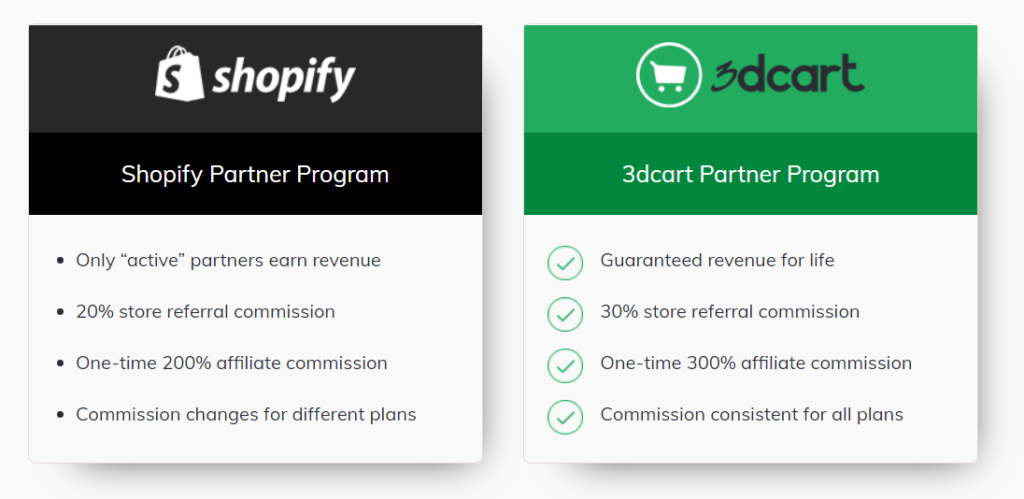
For your larger affiliates, it’s important that you prevent them from switching over to a competitor. To keep them interested in your partnership, work out co-branding deals that include the affiliate’s brand or website within your product or service. This could even be as simple as a landing page with the affiliate’s logo, welcoming their audience to your business.
Here’s an example of that co-branding from HostGator, who collaborated with Road to Blogging:
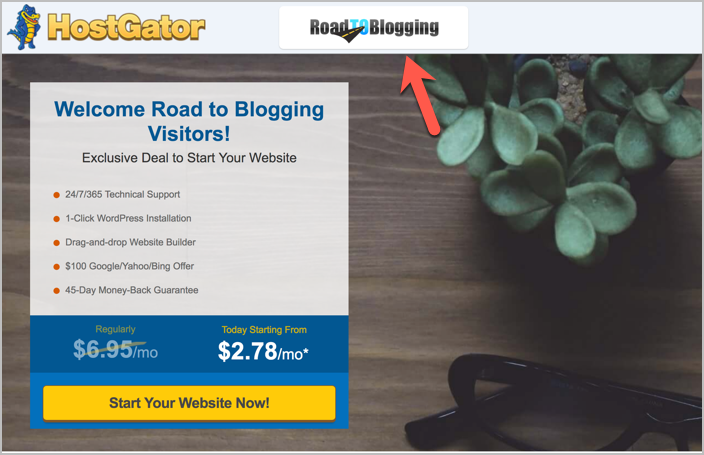
6. Your Affiliates are Impatient
It’s not uncommon that affiliates will join programs because they’ve heard the stories of massive success with little effort. Passive income is a dream that many new entrepreneurs want to achieve through an affiliating marketing program, especially if they own a website. According to MakeaWebsiteHub, 76% of website owners choose affiliate marketing over other monetization because it’s the easiest method available. However, any marketing professional can tell you that overnight success is not guaranteed.
Solution: Implement a tiered reward system that consistently motivates.
To keep affiliates encouraged, even if they haven’t earned the thousands of dollars that they expected, you can implement a tier-based reward system that gives them a reason not to quit. This is a form of gamification, which utilizes typical game elements like points and competition to encourage engagement. Gamification is an extremely effective way to engage your sales team and affiliates; Hewlett-Packard actually saw a revenue increase of up to 44% when using gamification for its sales representatives.
A great example of this is Twitch’s Affiliate Program, which is one of the more unique programs available.
Twitch is a streaming website, where streamers broadcast themselves playing video games to viewers. Once a streamer becomes a Twitch Affiliate, they can accept donations from viewers in the form of subscriptions or “bits”. A percentage of that donation goes to Twitch, along with the ad revenue that the viewer generates when watching the stream, while the Twitch Streamer gets the rest. However, Twitch Affiliates gain other perks alongside the funds from subscriptions; after receiving a certain amount of “bits,” which are smaller donations than subscriptions, they can unlock special emotes to be used by their viewers.
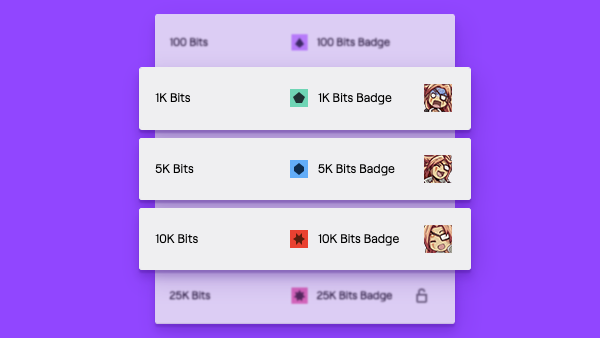
These small perks, although not as profitable as subscriptions, can help to continuously motivate affiliate streamers to continue streaming and bringing more viewers onto the platform.
7. You Hired Affiliates with No Experience
This problem goes hand in hand with our previous point; without prior experience as an affiliate marketer, new affiliates may have unreasonable expectations for the success they hope to gain from your program. Another issue that can arise from no experience is the affiliate’s inability to properly promote your store. They may default to spammy promotion tactics, which can reflect negatively on your own business.
Solution: Have higher standards when hiring affiliates.
This problem can be solved simply by implementing a better set of standards when hiring affiliates for your business. Some businesses may be eager to hire as many affiliates as possible, deciding to approve every single affiliate that applies. However, quantity does not equal quality.
In your affiliate application, require applicants to provide information that gives you more insight into their background as a marketer, content creator, or influencer. Ask for a website URL, YouTube channel, or social media links to prove that they do have a valuable following that can benefit your business. It’s also crucial that their audience aligns with your own.
Inquire about previous experience as an affiliate in other programs and ask what they’d like to see out of your program. This can help you understand what the applicant’s expectations are from your program, and whether or not they’ll be a good fit.
Moving Forward
As you further develop and optimize your affiliate program, try not to take your affiliates for granted. While you are engaging in a mutually beneficial relationship, where both parties seek to gain a profit, you should also constantly show appreciation to your affiliates.
By referring customers to your business, affiliates are performing the most effective method of word-of-mouth marketing available on the internet. Whether you’re running a fashion business or web-hosting site, treat your affiliate marketers as a valuable part of your sales team.
Share this article
Affiliate marketing for beginners
Discover the essentials of affiliate marketing for beginners with Post Affiliate Pro. Learn how to build an audience, create engaging content, and use marketing channels to earn commissions. Unleash your passion for your niche, showcase products through video, and boost sales with special deals. Dive into the world of affiliate marketing today!
How to Create an SEO Affiliate Marketing Strategy
Explore how to effortlessly boost your online presence with SEO affiliate marketing. Learn essential tips for success, including the power of long-tail keywords, and discover the benefits of upfront investment. Optimize your affiliate marketing strategy with trusted tools like Post Affiliate Pro, and start earning without the hassles of product creation. Unlock the potential of SEO-driven traffic and maximize conversions today!
How to use Social Media for Affiliate Marketing in 2025
Explore the power of social media for affiliate marketing in 2023! Discover strategies to optimize Facebook, Instagram, Twitter, and Pinterest for higher engagement and conversions. Learn how to use targeted ads, optimize profiles, and engage with your audience for remarkable affiliate success. Unlock the potential of social media and boost your affiliate earnings today!
6 affiliate marketing mistakes businesses should avoid
Avoid common affiliate marketing pitfalls with expert insights from Post Affiliate Pro. Learn to create high-quality content, choose the right niche, invest in yourself, monitor competitors, optimize for SEO, and leverage analytics for success. Boost your affiliate business by steering clear of these mistakes and maximizing your profits.
The 7 most common affiliate marketing questions answered
Discover the answers to the 7 most common affiliate marketing questions with our comprehensive guide! Learn how to get started, choose the right niche, and find reputable programs. Whether you're a beginner or looking to boost your affiliate earnings, this resource will guide you toward success in the affiliate marketing world. Visit now to unlock the potential of affiliate marketing!
The 6 best promotional materials for your affiliates
Discover the top 6 promotional materials to boost your affiliate marketing success! From engaging images and graphics to compelling video content and valuable coupons, empower your affiliates with high-quality assets that drive results. Attract new affiliates, enhance productivity, and maintain brand consistency with these essential tools. Visit now to transform your affiliate strategy!
![7 Reasons Why Affiliates Aren’t Promoting Your Online Store [And How to Fix Them]](https://www.postaffiliatepro.com/wp/urlslab-download/59b597b539b1e8e18915c9e382eceed6/featured-image-why-affiliates-are-not-promoting-960x287.png)













